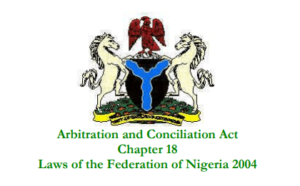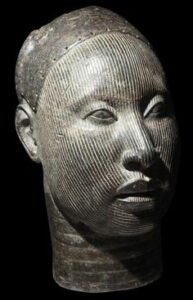Arbitration in Nigeria is governed by the Arbitration and Conciliation Act (Chapter 18, Laws of the Federation of Nigeria 2004) (the “ACA”), which incorporates the 1985 UNCITRAL Model Law on International Commercial Arbitration (“UNCITRAL Model Law”). Nigeria, in addition to being the African country with the largest economy in terms of nominal GDP, was the first African State to adopt the UNCITRAL Model Law, in 1988, through the Arbitration and Conciliation Decree No. 11 of 14 March 1988. Before the 1988 Decree, arbitration was regulated by the Arbitration Act of 1914, which was a mirror image of the 1889 English Arbitration Act.
Although the ACA is the primary source of arbitration legislation in Nigeria, Nigeria is a federation of 36 States and 1 Federal Capital Territory. The 2009 Lagos State Arbitration Law applies to all arbitration within the federal State of Lagos, except where parties expressly agreed otherwise.
The New York Convention on the Recognition and Enforcement of Foreign Arbitral Awards was ratified by Nigeria on 17 March 1970, with reciprocal and commercial reservations, and incorporated into the Preamble of the ACA. Nigeria is also a contracting party to the Convention on the Settlement of Investment Disputes between States and Nationals of Other States, since 14 October 1966, only six years after Nigeria gained independence from Britain.
Arbitration Agreements in Nigeria
The ACA is applicable to commercial disputes. The scope of “commercial” is broad and defined at Section 57 as “all relationships of a commercial nature” including “trade transaction for the supply or exchange of goods or services, distribution agreement, commercial representation or agency, factoring, leasing, construction of works, constructing, engineering licensing, investment, financing, banking, insurance, exploitation, agreement or concession, joint venture and other forms of industrial or business co-operation, carriage of goods or passengers by air, sea, rail, or road”. Thus, disputes arising out of criminal, tax, constitutional matters, and bankruptcy are not arbitrable in Nigeria, as in many other States.
Nigerian courts have long given full effect to the parties’ intent to submit disputes arising out of their contractual relationships to arbitration. In Kano State Urban Development Board v. Fanz Construction Ltd, the Nigerian Supreme Court held that “the defendant having allowed the arbitrator to embark on the whole reference, having regard to the agreement of reference between the parties to this case and without any objection, it is now no longer open to him to challenge the authority of the arbitrator to take the reference”.[1]
Section 1(1) of the ACA requires the arbitration agreement to be in writing. This requirement is fulfilled if the arbitration agreement is contained in:
- a document signed by both parties;
- an exchange of letters, telex, telegrams or other means of communication that provides a record of the arbitration agreement; or
- an exchange of points of claim and of defence in which the existence of an arbitration agreement is alleged by one party and not denied by another.

Nonetheless, the ACA appears to have contradictory provisions relating to stay of proceedings. While Section 4 sets forth that the court, which receives an action subject to arbitration, “shall” stay proceedings if requested by a party before the submission on the merits, Section 5 provides that a court “may” make an order staying proceedings if following conditions are satisfied:
- there is no sufficient reason why the matter should not be referred to arbitration in accordance with the arbitration agreement; and
- the applicant party was, at the time when the action was commenced and still remains, ready and willing to do all things necessary to the proper conduct of the arbitration.
It has been argued that Section 4 reflects Nigeria’s international commitments under the New York Convention and would apply to court proceedings brought in violation of an international arbitration agreement. Section 5, in turn, existed before the ratification of the New York Convention and should apply in the context of domestic arbitration.
The doctrine of separability is provided in Section 12(2) of the ACA, which specifies that “an arbitration clause which forms part of a contract shall be treated as an agreement independent of the other terms of the contract”. In NNPC v. Clifco Nigeria Limited, the Supreme Court, relying on the English case Heyman v. Darwin Ltd. [1942], made plain that an arbitration clause survives the novation of an agreement.[2]
Generally, in arbitration agreements, where the arbitration clause is a part, the arbitration clause is regarded as separate. So where there is novation, purpose of contract may fail but the arbitration clause survives. See: Heyman v. Darwin Ltd. (1942) AC 356 at 373. The purpose of arbitration might have failed, but the arbitration clause which is not one of the purposes of the contract survives. The two courts below were correct when they found that modification of the terms of the obligation in the original contract with new terms on 27-9-99 did not extinguish the arbitration clause in the original contract.
Finally, Section 12(1) of the ACA authorizes the arbitral tribunal to rule on questions regarding its own jurisdiction and on objections that concern the existence or the validity of an arbitration agreement.
Arbitration Proceedings and Arbitral Tribunals in Nigeria
In Nigeria, arbitration proceedings are deemed to have commenced when the party, against which the arbitration is brought, receives the notice of arbitration from the party initiating the proceeding (Section 17). If the parties’ agreement is silent as to the seat and the language of the proceedings, the tribunal shall decide the seat and the language to be adopted having regard to the circumstances of each case (Sections 16(1) and 18(1)).
Under the ACA, parties are free to agree, in contractual terms, on any qualifications or requirements, such as nationality or religion, for the appointment of their arbitrators (Section 6).
Section 7(2) provides for a mechanism to constitute the arbitral tribunal or designate the sole arbitrator when the parties fail to engage in an appointment procedure. Additionally, any party may request the court to appoint an arbitrator on behalf of the defaulting party (Section 7(3)).
In Bendex Engineering v. Efficient Petroleum Nigeria Limited, the court was required to appoint an arbitrator on behalf of Bendex Engineering to decide the dispute between the parties. While Bendex Engineering appealed on the ground that there were no basis for the court to have appointed the arbitrator, the Court of Appeal clarified its function in the appointment of arbitrators and in supporting arbitral proceedings.[3]
In arbitration matters, the dominion of the court in original cause is over the appointment of arbitrators, in contrast with the arbitral tribunal, whose preserve is the resolution of the dispute. It follows from that division of duty that it will amount to a downright usurpation of the authority of the arbitral tribunal and acting in excess of its own jurisdiction if the court should dabble into any matter touching on the merit of the dispute.
In Nigeria, arbitrators are required to be impartial and independent (Section 8(1)). Under Section 8(3), parties are authorized to challenge an arbitrator if circumstances exist that give rise to justifiable doubts as to his/her impartiality or independence or if the appointed arbitrator does not possess the qualifications agreed by the parties. The application to challenge an arbitrator must be filed within 15 days from the constitution of the arbitral tribunal or from the moment the party becomes aware of any circumstances giving rise to his/her justifiable doubts.
Enforcement, Recognition and Annulment of Arbitral Awards in Nigeria
According to Section 26 of the ACA, the arbitral award must be in writing and signed by the arbitrator(s). It must also contain the reasons upon which the decision was based, the date it was issue and the place of arbitration.
In Nigeria, an arbitral award is final and cannot be appealed. Domestic awards are to be recognized and enforced upon a party’s application in writing (Section 31). A party wishing to enforce a foreign award must file an application in writing accompanied by the duly authenticated original or a certified copy of the award and arbitration agreement. If the award or the arbitration agreement are not in English, a translation must be provided (Section 51(1)).
The ACA also sets forth the grounds upon which an award may be set aside. Any party may request the court to refuse recognition or enforcement of the award (Section 51). Pursuant to Section 52(2), the courts may refuse recognition or enforcement of the award if:
- a party to the arbitration agreement was under some incapacity;
- the arbitration agreement is not valid under the law which the parties have indicated should be applied, or failing such indication, that the arbitration agreement is not valid under the laws of Nigeria;
- the party was not given proper notice of the appointment of an arbitrator or of the arbitral proceedings or was otherwise not able to present his/her case;
- the award deals with a dispute not contemplated by or not falling within the terms of the submission to arbitration; or
- the composition of the arbitral tribunal, or the arbitral procedure, was not in accordance with the agreement of the parties.
Courts will also refuse to enforce and recognize an arbitral award if (i) the subject-matter of the dispute is not capable of settlement by arbitration under the ACA; or (ii) the award is against the public policy of Nigeria.
Nigerian courts have demonstrated a supportive approach in the recognition and enforcement of arbitral awards under the ACA. In Arbico Nigeria Limited v. Nigeria Machine Tools Limited,[4] for instance, the Court of Appeal reminded that the court may not interfere with the jurisdiction of the arbitral tribunal and confirmed the recognition of an arbitral award granted by the High Court.
The court, in spite of its wide powers has to bear in mind that the parties before it have provided in their agreement to have their dispute or difference referred to arbitration as against the regular courts of competent jurisdiction and so it (the court) has to show reluctance to interfere with the arbitrator’s jurisdiction as the sole Judge of law and fact unless it is compelled to so.
[1] Kano State Urban Development Board v. Fanz Construction Ltd (1990) 4 NWLR (Pt. 142) 1.
[2] Nigerian National Petroleum Corporation v. Clifco Nigeria Limited (2011) 10 NWLR (Pt. 1255) 209 (emphasis added).
[3] Bendex Engineering v. Efficient Petroleum Nigeria Limited (2010) 8 NWLR (Pt. 715) 333.
[4] Arbico Nigeria Limited v. Nigeria Machine Tools Limited (2002) 15 NWLR (Pt. 789) 1.